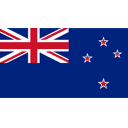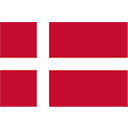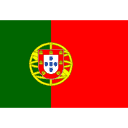Doing business with a Sri Lanka PEO / EOR
The second-wealthiest nation in South Asia, Sri Lanka is outperforming similar countries in meeting their Millennium Development Goal. By more than halving extreme poverty, they’ve created an economy that is focused on stability and income growth. In doing so, the country is open to creating lower-level jobs to assist its population to continue rising upwards. These factors are relevant to any overseas business wishing to begin operations in Sri Lanka, hoping to test out the market.
As Sri Lanka has been occupied by Portugal, the Netherlands, and Great Britain, a number of languages are used. The official languages: Sinhalese and Tamil are the languages of contracts. Although English is specified as the official “Link Language”, any foreign companies seeking expansion into Sri Lanka, can find the barriers awkward, especially when fast-tracking business openings. It’s a beneficial choice to partner with a qualified with a (PEO) or Employer of Record (EOR) to ensure success and smooth market entry.
Read on as we explore the benefits and ratings of the best Sri Lankan PEOs/EORs for your company.
Why partner with a PEO/EOR in Sri Lanka?
On your own, setting up a new office or business in Sri Lanka can be slow, expensive, and complicated. Sri Lankan’s dedication to raising the average income level has resulted in labor laws with strong worker protections. Getting through local and national laws makes a local PEO/EOR presence invaluable. They can assist with hiring, accurate contract drafting, HR issues, and more. In addition, converting contract labor to employees can be done without setting up a legal entity. New companies have the leverage to retain top talent.
Best Sri Lanka PEOs and Employer of Record
Horizons
Asian-based Horizons continue to be tops at providing their brand of comprehensive support services. New Sri Lankan businesses can rely on their local presence, Tailored solutions for their worldwide portfolio of customers are a specialty. Their client base is diverse and includes Fortune 500 companies.
For businesses completely new to the Sri Lankan market, Horizons offers a full suite of PEO/EOR solutions – even turnkey business openings. Fast hiring, expedited employee onboarding, and accurate assessment of staff are just part of their services.
Website: Horizons
Global PEO
Global PEO has a global presence in over 100 countries worldwide, featuring workforce solutions that allow clients to interface with HR and payroll areas while remaining remote. For new companies that have found their own local specialists in Sri Lanka, they can offload HR support issues to their all-purpose system.
Global PEO promotes fast onboarding and recruitment solutions as they handle hiring and workforce management as the legal employer.
Website: GlobalPEO.com
Velocity Global
Colorado-based Velocity Global has become a well-known source of end-to-end services for new overseas business launches. They provide a helpful online Resource Center for information on foreign expansion, the important details of Sri Lanka PEOs, and the best business practices on approaching talent acquisition overseas.
Advertising fast onboarding, Velocity Global has worked in 185 countries, such as Sri Lanka, since its 2014 launch. They’re proud of their knowledge base and are now expanding their platform usage in the cloud.
Website: Velocityglobal.com
Request a Proposal
If you are interested in expanding your company’s operations into Sri Lanka, GlobalizationPedia can connect you with a PEO that best fits your needs at a cost-effective price. Fill out the form below today and we’ll use our extensive database of strategic partnerships to provide you with a full rundown of the best potential Sri Lanka PEO matches for your company.
How useful was this post?
Click on a star to rate it!
Average rating 5 / 5. Vote count: 2
No votes so far! Be the first to rate this post.





































